Academic year 2024/2025
Core Module Courses
Area
European History, Politics, Culture, Law, Economy
- face-to-face: students attend on campus
- hybrid: T4EU students attend online, home students attend on campus
- blended: the course is largely online (for all students), but there may be face-to-face elements, for instance for project work, at the mobility week or a final exam
- basic course (BC): knowledge in area of expertise
- application course (AC): students apply knowledge to gain experience and generate societal transformative impact in limited scope
subject title
Introduction to Heritage Studies
The course provides an overview of the fundamental epistemological frameworks and concepts in the field of heritage studies, with an emphasis on their interdisciplinary character, which crosses and connects various fields of humanities and social sciences.
- Students will get aquinted with the development of this new field, which is in the phase of transformation into an independent science. So they will get to know concepts from anthropology, philosophy, and human geography, which provided the basis for their studies.
- Based on practical examples from various internationally selected cases, they will get acquainted with the basic concepts and definitions from the field (monument, heritage, heritageisation, heritage discourses, heritage dissonance; invented traditions; imagined communities; authenticity; collective memory, lieux de memoire/sites of memory…). Special emphasis will be devoted to the cultural-historical development of the concepts.
Prerequisites:
Within T4EU The course is conceived for students that are already engaged in heritage topics, in related disciplines (heritage studies, anthropology, art history, archaeology, geography, museology, conservation).
Lecturer: Neža Čebron Lipovec
University of Primorska | ECTS: 6 | BC | Modality: hybrid | Language: English | Start date: 1.10.2024 | End date: 17.1.2025 | Time: To Be Confirmed
subject title
Financial markets, institutions and instruments
The purpose of this course is to explore financial markets, the essential role of financial institutions, and the variety of financial instruments available. Students will gain insight into the structure and functions of the financial system and the operation of equity, debt, derivatives, and foreign exchange markets. The course also covers the operation of major financial institutions such as banks, investment intermediaries, and insurance companies. It also provides a detailed examination of financial instruments, from traditional options such as stocks and bonds to complex derivatives, emphasizing their use in risk management and investment strategies. By combining theoretical knowledge with practical insights and real data, this course equips students with knowledge of the mechanisms of the financial system and its impact on the global economy.
Number of places for T4EU students: 10.
Lecturer: Suzana Laporšek
At UP Faculty of Management, we have quarters, and whether it is going to be 1st or 2nd quarter hasn’t been decided yet.
University of Primorska | ECTS: 3 | BC | Modality: hybrid | Language: English | Start date: 1.10.2024 | End date: 17.1.2025 | Time: To Be Confirmed
subject title
Economic statistics
The aim of this course is to present to the students the two facets of statistics. On the one hand, the course explains official data – its creation, calculation, purpose and use. On the other hand, the course discussed the official statistical data from the perspective of interpretation and appropriability. The topics covered range from prices and output (GDP and industrial production) to population and labour, as well as global indeces like the Human Development Index or Corruption Perception Index. During the course students should get acquainted with the basics and operating principles of official statistics with an emphasis on statistical concepts of economic activity; as well as understand the conceptual bases of economic statistics and quality assessment (while being able to discuss limitations of indicators from the field of economic statistics). This means that the course provides to students the knowledge and skills to be able to search for secondary statistical data in the field of economic activity and use statistical software tools to perform statistical analysis and work with statistical databases in a correct and appropriate manner.
Number of places for T4EU students: 10
Lecturer: Ana Grdović Gnip
At UP Faculty of Management, we have quarters, and this subject will be in the 2nd quarter, ie. starting November, 25
University of Primorska | ECTS: 6 | BC | Modality: hybrid | Language: English | Start date: this subject will be held in the 2nd quarter, ie. starting November 25.
subject title
Artificial Intelligence
The course relates to ethical, social and legal implications of AI. It challenges the concept of AI by examining its occurrence in domestic, including EU, and international frameworks. Specific research areas cover AI-related concepts, applications across industries and states; environmental consequences of AI; ethics of AI – how far should we trust technology; discriminatory algorithms; data protection law; cybersecurity; AI on trial; weaponising AI; needs for international, EU and domestic regulations. The course encourages students to conduct an independent analysis of voluntary reading material and critically evaluate discussed matters, to research additional data and to clarify arguments and possible answers to the problems posed by machine learning tools.
Lecturer: Dominika Iwan-Sojka
University of Silesia | ECTS: 3 | BC | Modality: hybrid | Language: English/Polish | Start date: 1.10.2024 | End date: 16.1.2025 | Time: To Be Confirmed















